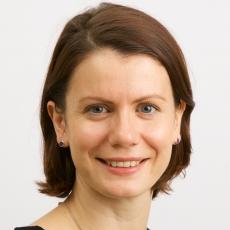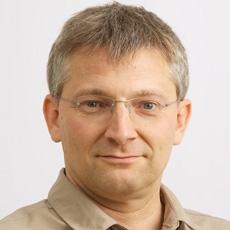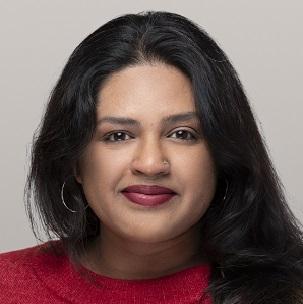Want to share your screen? See the person you're talking to? Contact us via digital library desk! We will be with you shortly.
Monday-Friday




Want to share your screen? See the person you're talking to? Contact us via digital library desk! We will be with you shortly.
Monday-Friday




Here you can find a list of events previously held or organized by Lib4RI. If available, course materials, screen casts, and presentation slides are included.
Behind the bookshelves - Recordings
Speaker: Janina Radny, Lib4RI
AI bots are accountable for a significant share of website and API traffic nowadays. This can results in drastically reduced “real human” interaction for websites and repositories, with at paradox increased traffic and associated costs. Instead of hiding content behind paywalls, Creative Commons (CC) propose a new set of licences that express preferences how works can be used in AI training—emphasizing reciprocity, recognition, and sustainability in machine reuse. In contrast to the well established CC licences, CC signals is not targeting the individual author but rather stewards of content and collections of data. In this coffee lecture we present the idea of CC signals and want to start a discussion with you on applicability and consequences for research data collections.
Click here for the slides.
Speaker: Olivia Denk, Swiss academies of arts and sciences
In this coffee lecture, presented by the co-coordinator of CoARA’s Swiss National Chapter, researchers were introduced to CoARA’s mission to reshape research culture. The presentation focused on the initiative’s vision and current activities of its communities, like Working Groups and National Chapters. Additionally, the role of Open Science in transforming research assessment was highlighted.
Click here for the slides.
Open Access Week - Recordings
“Who owns our knowledge?” – The motto of this year’s Open Access Week raises a question that has been at the core of the Open Access movement. The rise of AI and large language model (LLM) training and use brings a new urgency to this question. In this talk, David Rosenthal shared his perspective as expert lawyer on this field. Specifically, he focused on how today's copyright law deals with the training of large language models with third party content (what is permitted?), how well copyright law is prepared for fairly balancing the interests of rights holders models and those using AI and what we have to expect from a legal point of view.
Speaker: David Rosenthal counts to the leading experts in Data and Technology law in Switzerland and is partner at the Swiss law firm Vischer. His view on the topic is broadened also by his earlier work as software developer, journalist and legal advisor.
In several blog entries, he and his colleagues focus specifically on the interplay of AI/LLM use with Swiss and EU copyright, data, and privacy laws. In cooperation with the ETH AI center, they also authored a detailed legal analysis about LLM training with regard to the Swiss legal system. On behalf of the Consortium of Swiss Academic Libraries, he played a key role in shaping the AI clause in the publishing agreement with Wiley, signed earlier this year.
His publication on challenges for media houses in an era of 'agentic AI' services even led to discussions in the Swiss National Council on how to amend Swiss copyright law.
Recording and slides for the talk AI & Copyright - friends or foes? © 2025 by David Rosenthal are licensed under CC BY-NC-ND 4.0
Panelists:
Guest (University of Zürich): Prof. Dr. Torsten Hothorn
Professor of Biostatistics at the Epidemiology, Biostatistics and Prevention Institute, Co-Editor-in-Chief for the Diamond OA Journal of Statistical Software
Eawag: Prof. Dr. Juliane Hollender
Associate Editor for Environmental Science & Technology (hybrid)
Empa: Dr. Mateusz Wyrzykowski
Managing Editor for RILEM Technical Letters (Diamond OA)
PSI: Dr. Anuschka Pauluhn
Editor for ISSI Bern , books & public outreach journals for astrophysics & space science
WSL: Dr. Eckehard Brockerhoff
Co-Editor-in-Chief for New Zealand Journal of Forestry Science (Diamond OA), Associate/Subject Editor for other journals incl. Biodiversity and Conservation & New Zealand Entomologist
As our contribution to Open Access Week 2023 and as part of WSL Distinguished Lectures, Lib4RI hosted a lecture by Matthias Egger, President of the National Research Council of the SNSF.
Abstract
In recent years, Open Access (OA) publishing has experienced rapid growth, witnessing the emergence of numerous new publishers and journals. In this talk, I will explore the benefits, challenges, and potential pitfalls of OA publishing from the perspectives of both an active researcher and a research funder. I will briefly revisit the well-rehearsed arguments for OA and discuss some challenges and abuses, such as peer review quality or predatory practices. Finally, I will conclude with a discussion of best practices and alternative publishing models.
The slides and video of Matthias Egger's talk “Open access: the good, the bad and the ugly?” are only available within the four Research Institutes! Please connect to the server via cable or VPN.
Love Data Week - Recordings
What is it?
Interactive eLearning modules and open training resources on Open Research Data (ORD) and Research Data Management (RDM)
Why join?
Learn about our first module on Data Publication and Long-Term Preservation.
Discover how to access, contribute, and shape the future of research data excellence.
Whether you’re a curious researcher or a data management enthusiast, come explore our collaborative ETH Domain initiative designed to support you throughout your research data journey!
Abstract: Quarto is an powerful tool for data analysis and publishing, offering seamless integration with R, Python, and Julia. It enables the creation of dynamic, reproducible reports with embedded code, visualizations, and rich narratives all in one document. With Quarto, you can easily publish interactive documents or websites, facilitating a smooth collaboration process and instant sharing of your work. The platform ensures a clean workflow, allowing for integration with version control tools like Git and making your analysis fully traceable. Additionally, Quarto is open-source, free to use, and supports a wide variety of output formats, including HTML, PDF, and slides, giving you flexibility in presenting your results. In this coffee lecture we give a brief first look, using R and RStudio.
Abstract: In 2020, openBIS was introduced at Empa, making it accessible to all departments and available for testing. This platform, provided by ETH Scientific IT Services (SIS), combines an electronic laboratory notebook (ELN) with a laboratory information management system (LIMS). Despite careful preparation, we encountered unexpected barriers, showing that changing existing systems requires more than tools—it demands effort, education, and sometimes a shift in mindset. In this presentation, I’ll highlight the challenges we encountered and the strategies we use to overcome them, paving the way for digitalized laboratory workflows.
Abstract: Data-centric research requires sharing not only the data, but also the code and computational environments needed to process and analyze the data. In this talk, we will present Renku, an open-source platform that empowers transparency, collaboration, and reusability in all types of data-centric research. In Renku projects, researchers connect their assets, namely data and code with computational environments, all in one place. These assets are designed to be reusable from the start, so they can be shared, reused and traced between projects. Since Renku projects are interactive in the browser, they are easily shared with anyone to make collaboration smoother. Overall, Renku supports the research lifecycle of data-centric projects, from day-to-day work to demonstration and publication.
Abstract: Tracking the changes you make to your code and uniquely versioning it is paramount to reproducibility. Keeping multiple branches of your code and being able to easily jump from one to another is useful for exploring different data processing or collaborating with others. Git does this for you easily and reliably. Whether you write complex software or simple scripts in your language of choice (R, Python, etc…), whether you are a lone code writer or part of a team, Git will make your life easier.
Please note: The videos of these coffee lectures are only available within the four Research Institutes! Please connect to the server via cable or VPN.
AI tools & LLMs - Recordings & material
As the demand for information and better understanding of AI tools, their capabilities, limitations and implications for academia and the publishing domain continues to surge, Lib4RI is excited to announce a lecture series for end of 2023 and early 2024!
The rise of AI technologies presents both exciting opportunities and challenges for academia and the publishing world. While these tools can enhance research, streamline content creation, and automate certain tasks, ethical concerns and questions of academic integrity have arisen. There are ongoing debates surrounding issues like authorship, plagiarism detection, and the impact of automated content generation on traditional publishing practices. Our lecture series will address these important concerns and provide insights on how to navigate this evolving landscape.

In this presentation, Mark Cieliebak sheds light on recent developments in Generative AI, with a strong focus on Large Language Models (LLMs) such as ChatGPT. This covers topics as broad as text summarization, essay generation, or chatbots. He will introduce the underlying technologies, present several showcases, and assess the potential of LLMs in future research and development. The core algorithms will be explained on a level that is also suitable for a non-technical audience.
The slides and video of Mark Cieliebak's talk "Language Models. Fundamental technologies and applications" are only available within the four Research Institutes! Please connect to the server via cable or VPN.

The second lecture in this series by Dr. Sampoorna Rappaz will specifically explore the role of LLMs in academia, addressing crucial themes such as: the impact of LLMs on academic writing, the ethical and practical considerations when integrating LLMs into academic work, and the opportunities and challenges presented by this transformative technology.
The slides and video of Sampoorna Rappaz' talk "What you need to know when using AI for academic writing" are only available within the four Research Institutes! Please connect to the server via cable or VPN.

In this talk, Sandra Marmy-Brändli will elaborate on the potential copyright issues researchers may face when using AI tools in their research. First, she will look at the question of whether AI-output can be protected by copyright law and if so under what conditions. Secondly, she will take a deeper look at potential copyright obstacles for training AI tools with copyright protected material, as well as potential defense strategies. Lastly, she will review the potential risks of infringing third party copyrights by using output created by AI tools.
The main aim of the presentation is to provide an overview over the legal situation in Switzerland; however, she will also shed light on the situation in the EU and briefly review some of the most recent ongoing AI cases from around the world, namely the pending AI law suits in the United States.